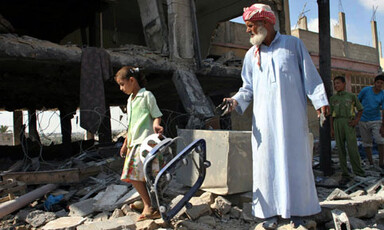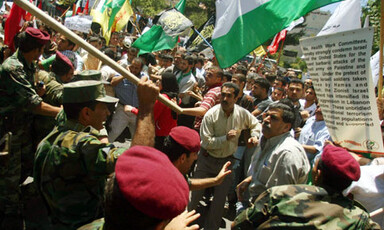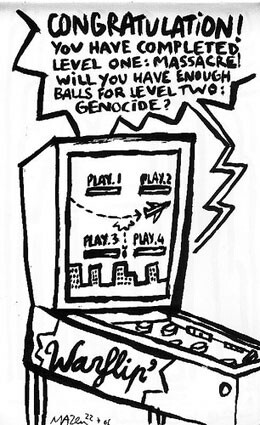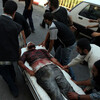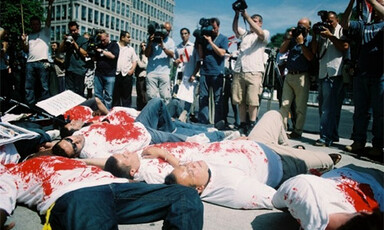
Dublin "Die-in" in support of Lebanon and Palestine
26 July 2006
The Israeli Embassy in Dublin was confronted on Tuesday with the death and destruction that it has wrought in Gaza and Lebanon in recent weeks. During its all-day vigil at the Israeli embassy, the Ireland-Palestine Solidarity Campaign (IPSC) held a symbolic “die-in”, in which Irish, Lebanese and Palestinian volunteers donned “blood”-stained clothes and lay down on the street in front of the embassy. All Irish local and national media were present and gave the protest prominent coverage across the day and in Wednesday’s newspapers. The demonstration was a prelude to a major march taking place in Dublin this coming Saturday 29th. Read more about Dublin "Die-in" in support of Lebanon and Palestine




